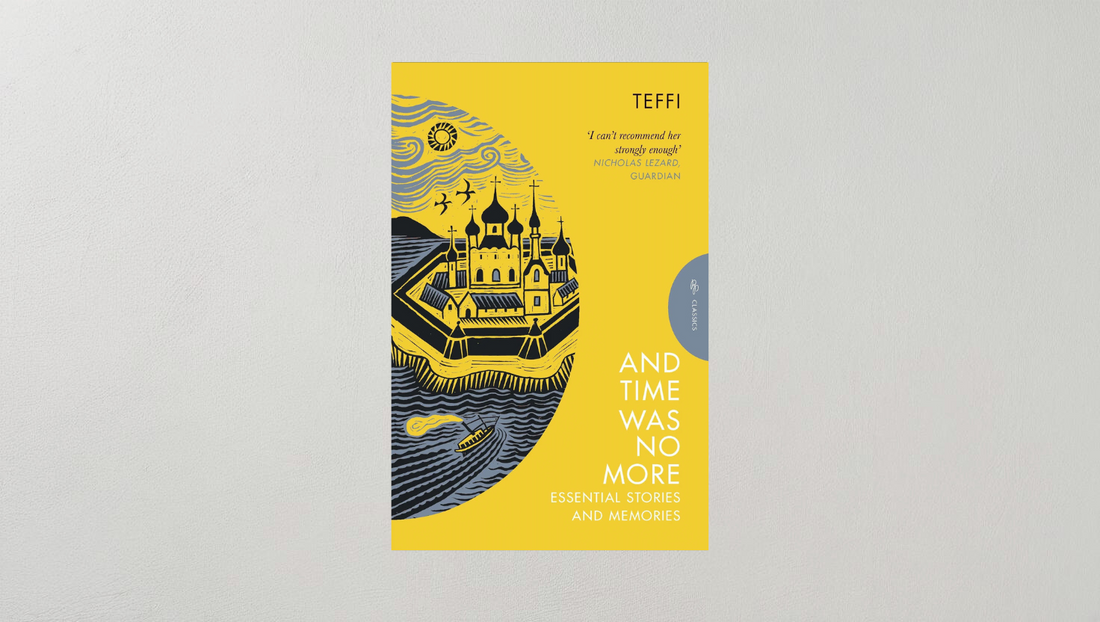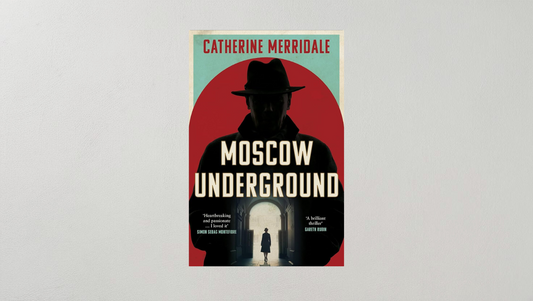Robert Chandler is one of the most eminent translators of Russian-language literature, including works by Vasily Grossman, Andrey Platonov and Teffi. As well as telling us about his favourite books, literary inspirations and who he would invite to a fantasy dinner party, Robert talks about his upcoming translation of Teffi’s stories, And Time Was No More, due to be published in April 2024.
Which authors/works have you enjoyed translating the most?
Hard to say. No novel has moved me more deeply than Vasily Grossman’s Stalingrad. Translating Pushkin’s prose is always refreshing; somehow it makes me feel emotionally cleaner. Teffi is a particular delight, since there is always so much that I fail to take in on first reading. Andrey Platonov – like Lawrence – has a breathtaking ability to write as if seeing, hearing and sensing the world for the first time.
Which book are you looking forward to reading?
Translating is laborious work and it leaves me little time to read at all widely. I want to read more of John Clare; I can now see that he is by far the greatest of the English Romantics. I admire Andrey Kurkov and am ashamed that I have still not found time to read his Grey Bees (tr. Boris Dralyuk). And I look forward to the sadly delayed publication of Dislocation, Julia Nemirovskaya’s second anthology of anti-war poems translated from Russian. Her first such anthology, Disbelief (Smokestack, 2023), is remarkable both for the quality of the translations and for its variety of tone and perspective.
What is your desert island book?
Dante, The Divine Comedy. If left long enough on the island, I would try to learn the whole of it by heart.
What is a book or poem that cheers you up?
Platonov’s short story “Among Animals and Plants.” The mere thought of it makes me smile. Almost every page brings together irony, tenderness, wisdom and cinematically precise observation.
What is a book you wish you’d written or translated?
I’d love to translate Dostoevsky’s Notes from the Underground. I can hear the intonations of a living voice in every sentence. I could say the same of Venedikt Yerofeyev’s Moskva-Petushki (in English translation Moscow Circles or Moscow Stations) – but I cannot imagine being able to reproduce his voice in English.
If you were having a fantasy dinner party, who would you invite?
H. Auden – for his wide-ranging intelligence and unexpected thoughts about so many important matters.
Penelope Fitzgerald – my favourite English novelist of the last seventy years. The Beginning of Spring, set in Moscow in 1913, is the best English novel set in Russia; it is hard to believe that Fitzgerald knew no Russian and made only one brief visit to the country. And, along with the novelist and art critic John Berger, she was one of the first English writers to recognize the greatness of Andrey Platonov.
Constance Garnett – for her courage and independence of mind. Few translators have introduced so many major writers into English. She succeeded in conveying the greatness of these writers and her translations were important to Lawrence, Katherine Mansfield, Virginia Woolf and many others. I think the worse of both Joseph Brodsky and Vladimir Nabokov for their condescending mockery of this brave pioneer.
Abram Hannibal – Pushkin’s African great-grandfather and a confidant of Peter the Great. Sent to study in Paris for several years, he met Diderot and other stars of the French Enlightenment. On his return to Russia, he worked as a translator and as a military engineer. Pushkin portrays him vividly in Peter the Great’s African, which my wife and I, together with Boris Dralyuk, greatly enjoyed translating.
Saint Jerome, together with his lion. Jerome translated the Bible into Latin and is the patron saint of translators. Countless Renaissance paintings portray him accompanied by a lion – Jerome had removed a thorn from the lion’s paw, and the grateful lion stayed with him till his death. I understand the lion as a protective spirit – a source of hidden strength for a translator to draw on when he feels lost in the wilderness.
Teffi herself!
What are your top 5 recommended books?
-
John Clare, The Major Works (Oxford World Classics)
-
Boris Dralyuk, My Hollywood and Other Poems – Boris is a close friend, so it’s best if I quote someone else’s praise. Anahid Nersessian writes, “Dralyuk embraces rhyme with a rare and admirable enthusiasm for sound and syllable, for musical variety and plays on words … [An] air of upbeat sorrow permeates My Hollywood. It’s an émigré mood, defined by the conviction that things could always be worse.” (New York Review of Books)
-
George Eliot, Middlemarch – the breadth and depth of her social and psychological understanding is unbelievable.
-
Rudyard Kipling, Kim – Kipling has been condemned as a racist, yet Kim shows a profound love of India and a deeply sympathetic understanding of Tibetan Buddhism.
- DH. Lawrence, The Rainbow – There is little one cannot find in Lawrence: brilliant wit, vivid pictures of the natural world, deep psychological perceptions and convincing evocations of the inner lives of small children. All this more than compensates for the passages of verbose preaching.
What are you reading at the moment?
Helen Vendler, Dickinson – Selected Poems and Commentaries. One of the half-dozen works of literary criticism that have truly deepened my understanding of a writer I love.
And Time Was No More is the fifth Teffi collection you have worked on – what inspired you to do another translation of Teffi’s works? How did you decide which stories to include?
Adam Freudenheim, the managing director of Pushkin Press, was keen to include Teffi in his “Essential Stories” series. In part, this collection is an anthology of the best stories from our previous collections, but we are also including some equally good but lesser known stories and articles that I have only recently come across for the first time. My overall aim was to give the reader a sense of Teffi’s life journey as a whole.
In what ways do you think Teffi’s stories are relevant to readers today? What lessons can we learn from her, or from her characters?
Last year, on Teffi’s 101st birthday, Boris Akunin wrote, “Her grace and indomitable courage are captivating. A cruel century dragged her through hardships of every kind – civil war, poverty and exile – but not once did it make her bow down or whimper. Teffi’s pre-revolutionary stories are entertaining. But her comic accounts of her travels and travails in Purgatory provide solid evidence that life can conquer death in ways unknown to science. […] We can learn from Nadezhda Alexandrovna how best to respond to adversity. Although it’s better, of course, if adversities pass us by.”
Do you have a favourite story or character in the new book?
Teffi herself. Erica Wagner ended her New Statesman review of Memories with the words, “Teffi is a courageous companion for anyone’s life.”
Which other authors, Teffi’s contemporaries, would you recommend?
Georgy Ivanov’s early poems are unremarkable, but I love the poems he wrote in his last year, when he knew he was dying. I am also grateful to him for his generous words about Teffi, written nearly a century ago: “[Teffi is] an inimitable presence in Russian literature [who will be] amazing readers a hundred years from now.”
What will you be working on next?
Another collection of Andrey Platonov’s stories for NYRB Classics. This will include both new translations and revised translations of several masterpieces that have been published in the UK, but not yet in the States.



